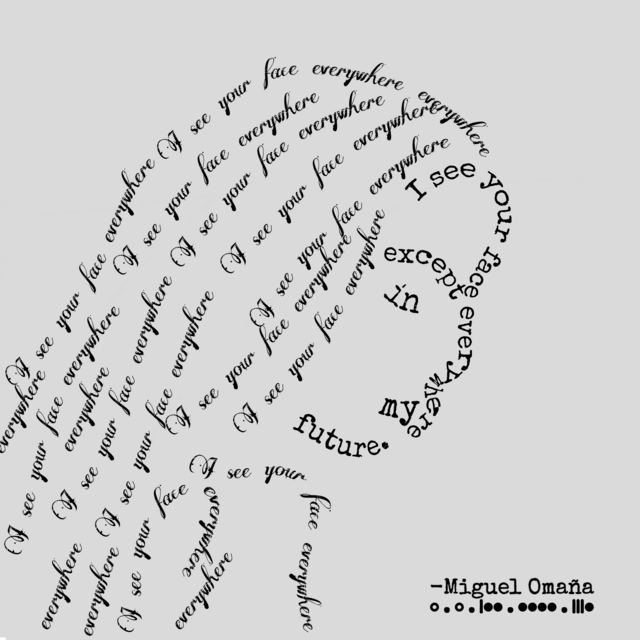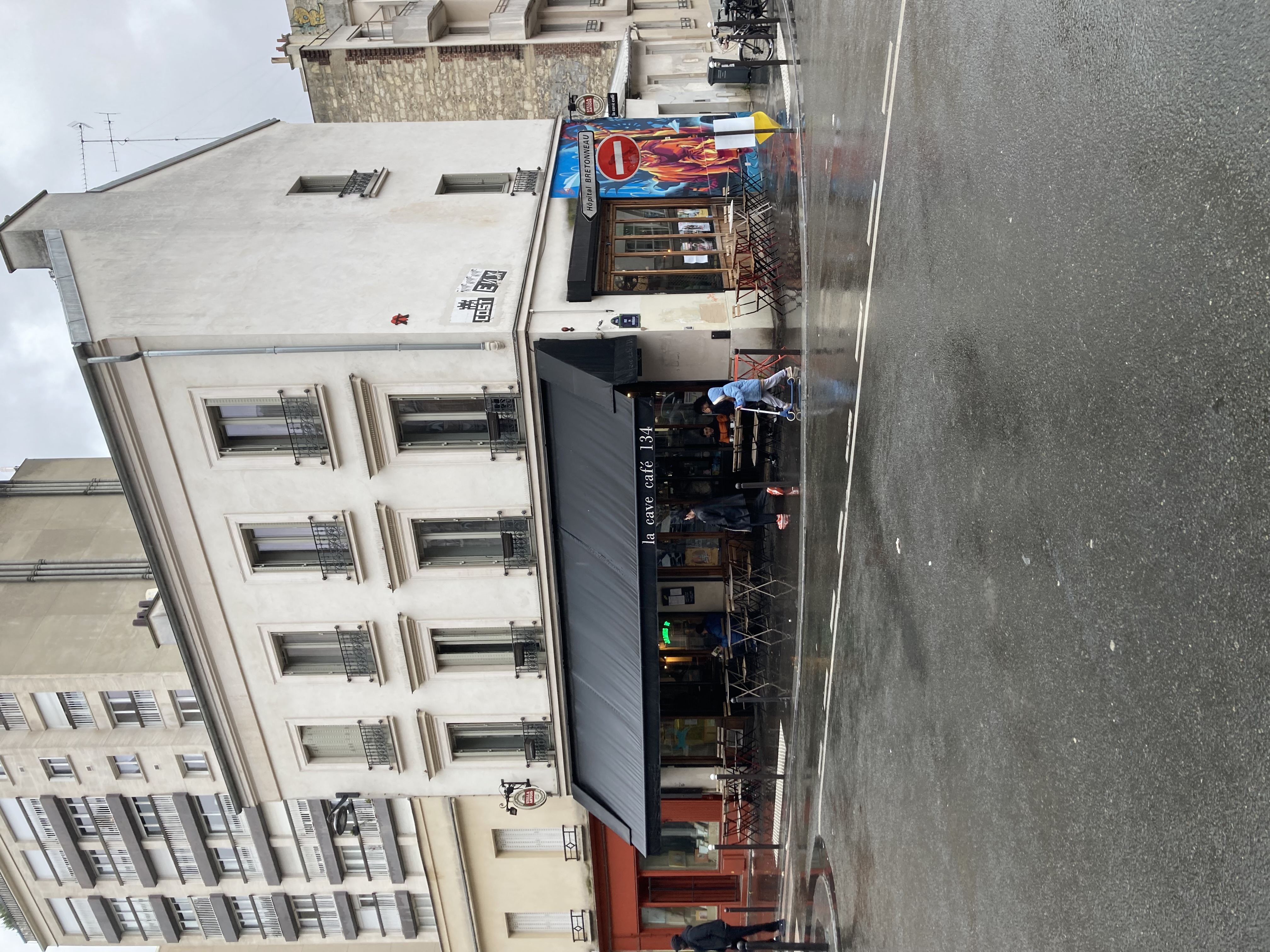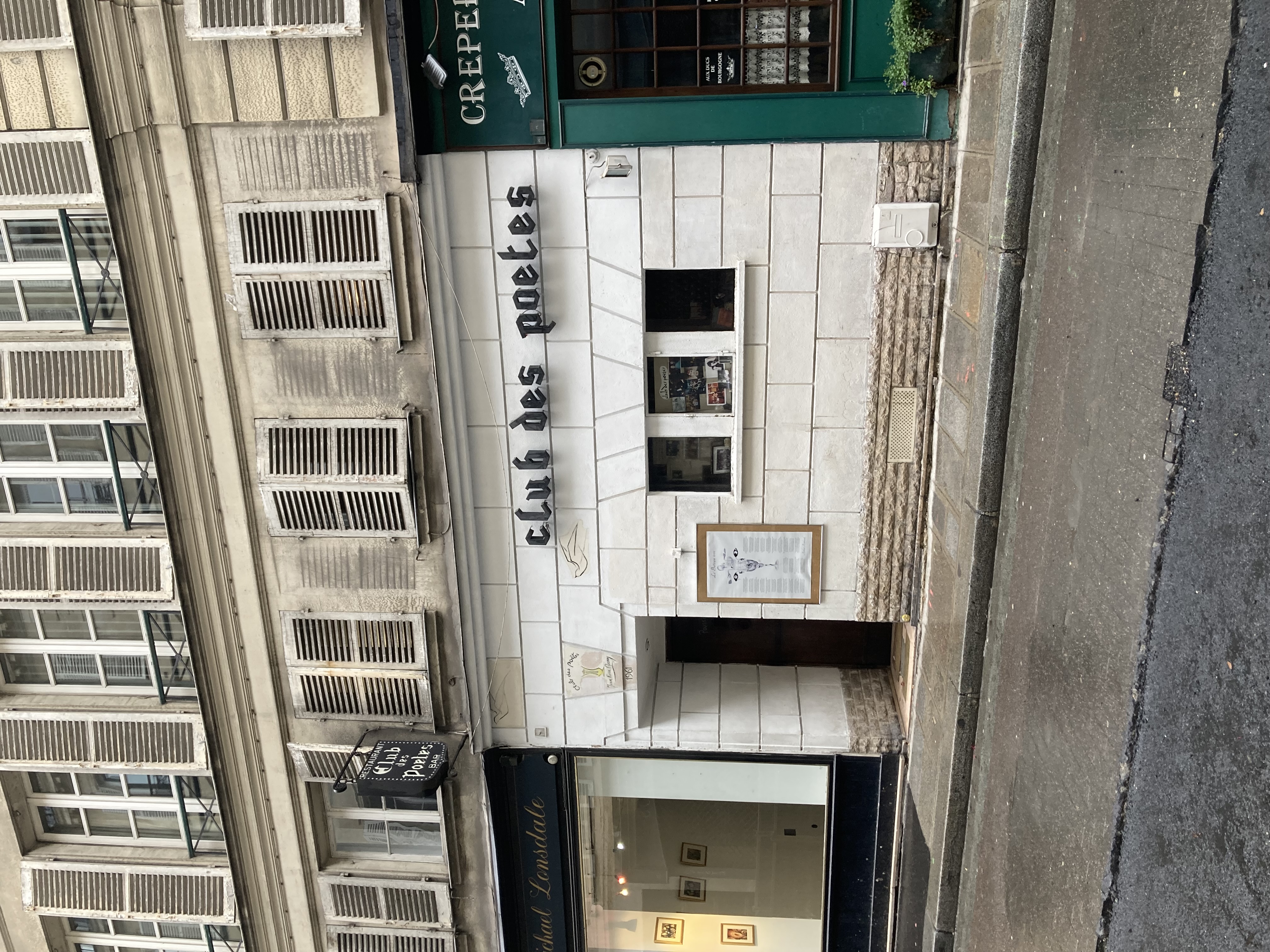Without Rhyme and With Plenty of Reasons

Poetry is as old as civilization itself. Since the beginning of humanity, stories in verse that speak of everything, from life and death to love and hate, have provided humans with an outlet for our emotions and a way of expressing the most profound aspects of our personalities. That is if you use it for those reasons. Almost as old as poetry itself is the debate around what it is supposed to be used for and what it looks like. Since I arrived in Paris, I have been treated to two different perspectives, one Anglo-Saxon and the other French. While both approach the art form from opposing points of view, both have provided me and others with the fulfillment poetry is supposed to provide.
Every Monday, in the northern reaches of Montmartre, a small and tight-knit community of Anglophones gather at 8:45 p.m. in the cramped basement of La Cave Café to share their poetry, music, errant ramblings, or even a combination of the three. The poetry continues well into the night in three rounds, with five minutes allotted to each of the ten performers per round. Like any open mic, the performances are of varying quality. Sometimes, a poem will leave you in tears, questioning every choice you made until that point. Others will make you laugh. Others will make you glance at the time on your phone, praying for the end of the round so you can grab some fresh air.

La Cave Café, home of the community of Anglophones. Image credit: Cross Lawrence
The passion of each performer cannot be denied, every one of them sharing something that comes from deep within them. During my own performances in front of this extremely comforting and supportive environment, I have shared stories of break-ups, sleepless nights, and profound wounds. While most of the poetry centers around the author's pain, some poets share stories of happier times. However, all share what is original and unique to them. It is up to the audience to respond. The atmosphere is free and without judgment, shunning anything related to the establishment and tradition.

Le Club des poètes, home of the Francophone community. Image credit: Cross Lawrence
In the 7th arrondissement at Le Club des poètes, next door to the Palais Bourbon, another group of poets meets every day except Sunday. After enjoying a meal and conversation, the lights are completely turned off. One by one, Francophones step into a spotlight that projects onto a single corner of the small room. From there, without the assistance of a microphone, any given person, usually a young student, begins to recount a classic French poem. Rather than original writing, the iconic works of Hugo, Lamartine, Zola, and Baudelaire, among others, are instead what is shared. Like their Anglophone counterparts of La Cave Café, the poetry carries well into the night. However, the atmosphere at Le Club des poètes is hugely different between the two establishments. Stuffier, more traditional, and certainly much less diverse, the atmosphere here is still welcoming, even to an American such as myself.
The profound difference in perspective between these two visions personified itself on February 8, 2023, at an Italian restaurant in Le Marais. As a bohemian neighborhood nestled in one of the wealthiest and most trafficked parts of Paris, it perfectly combines the respective natures of the two sides of the debate. On one side, the representative of the Anglophones. A poet who frequently wrote about sex, violence, addiction, and the utter insanity that had come to define her life. On the other side, the Francophone representative, who found such art, although he would not even allow himself to call it that, to be scandalous and below the discipline of poetry. The lack of a rhyming scheme and coherent stanza structure present in the Anglophone's poetry further strengthened his belief. The Anglophone's response was simple: it's all interpretive. It is up to the reader to derive what meaning they take from it. The Francophone replied that there are some things that are absolute and objective—and this type of poetry was objectively bad. The Anglophone replied that it didn't matter because her mentor made millions every year writing about such things. That was the end of the discussion, as the Francophone nearly fell out of his chair out of disbelief at her response.
I sat in the middle, watching this fight unfold and considering the merits of either side. I believe in the interpretive nature of poetry and art, and thus, virtually any content or theme is acceptable to write about in any fashion the author wishes. On the other hand, I understood the argument that money being a motive is what was wrong with the Anglo-Saxon mentality surrounding poetry. Victor Hugo and Alphonse de Lamartine are among my favorite writers, but I much enjoyed the more bohemian poetry I heard every Monday night among the poets at La Cave Café.
The small battle I witnessed opened my eyes to the diversity that is present within the Paris poetry scene, as it is a place where one could lead their entire literary existence on one side without ever experiencing the other. Paris is one of the literary capitals of the world, and one can find whatever they're looking for. Perhaps, in trying to make our art better, spending a night among the other side or among the unfamiliar is not such a bad idea.





